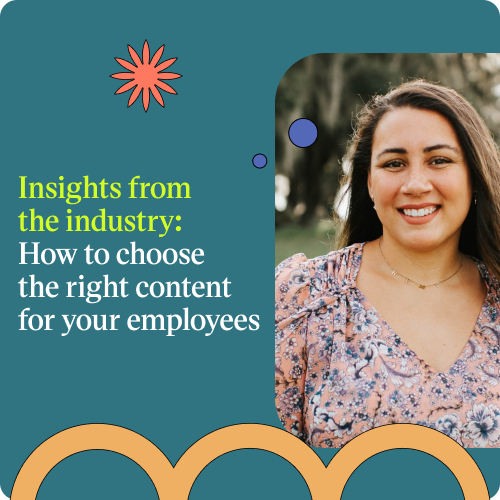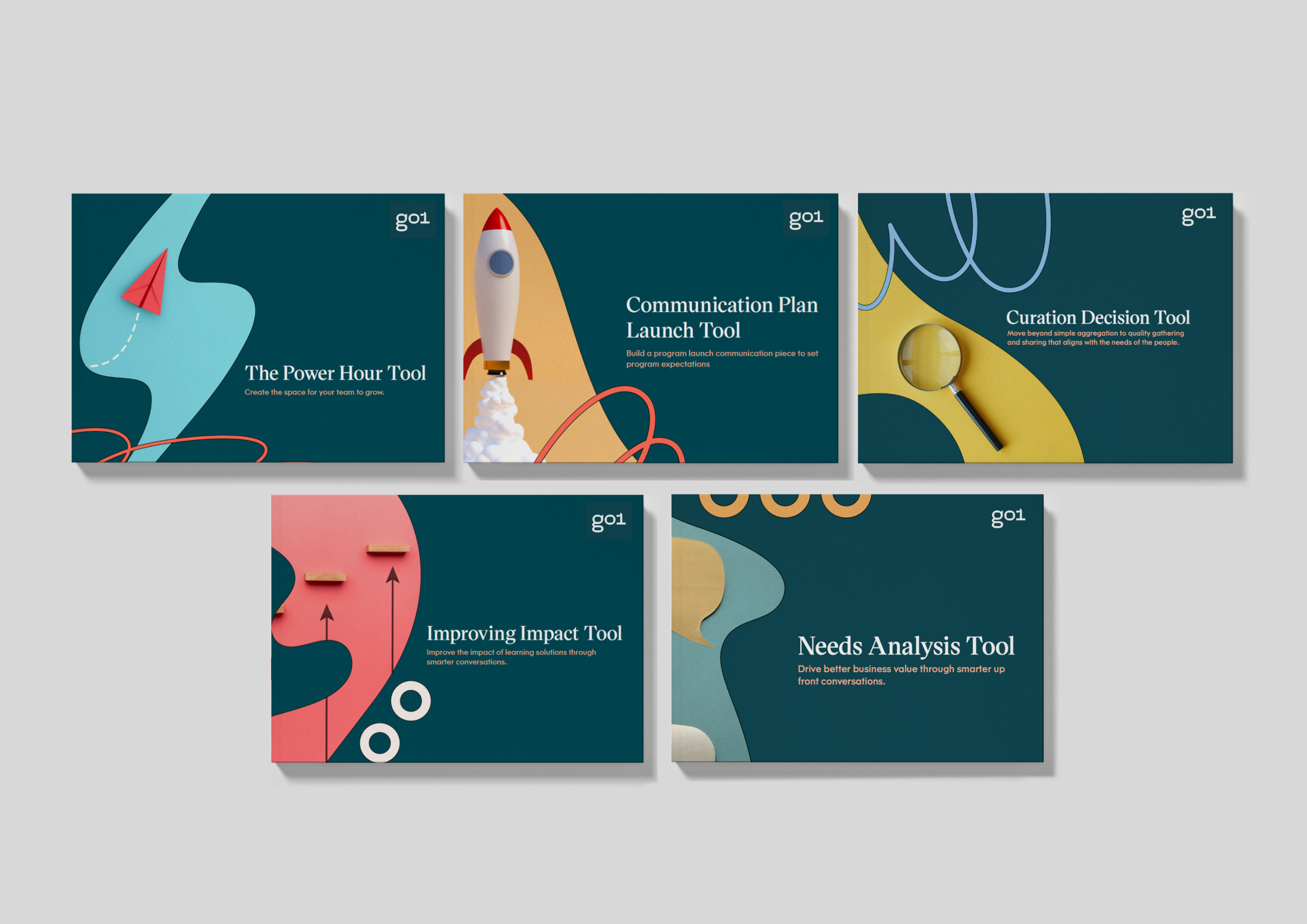
Insights from the Industry: How to choose the right content for your employees

Choosing the right content for your team can be tricky. After all, regardless of the size of your business, you likely have a diverse team comprised of employees with vastly different roles, unique goals, and varying levels of experience.
L&D has the potential to boost productivity and increase retention – but only if your content offerings are actually useful to your employees. Content that’s uninteresting, too long, or irrelevant won’t be well-received, which means you’ll be wasting time and money on unsuccessful learning.
So how can you effectively curate content that will meet the needs of everyone in your organization? We turned to several of our partners and customers to find out what strategies they employ when selecting learning content.
Gather feedback
First, when determining what content to offer, it’s important to listen to what your employees or customers are already saying about their current learning opportunities. Paying attention to customer feedback enabled WorkRamp, a Go1 partner, to determine exactly how they could improve their product to provide customers with the content they were asking for.
“Our teams work very closely with our customers so that there are always open channels of communication for feedback,” said Minerva Thai, Sr. Product Marketing Manager at WorkRamp. “One of the challenges we saw come up frequently was the need for off-the-shelf content. Those findings kicked us off to find the right company to partner with to meet our customers’ needs.”
Go1 customer Fanatics also takes feedback seriously. In fact, they started looking for new learning content in response to feedback they received in an employee engagement survey.
“We dove deep into the comments and the information that we received from the employee engagement survey,” recounted Dawn Stopha, Director of Global Programs at Fanatics. “People were crying out for employee development. ‘I want leadership development’ and ‘I need coaching programs.’ We thought, ‘Now it's time. Our employees are telling us it's time.”
Look for learning gaps
In addition to evaluating feedback from your employees or customers, you’ll also want to identify learning gaps across your company. While Karla Rainer, Director of HR at ABC Companies, has already worked with Go1 to build a content offering for her employees, she is continuously on the lookout for gaps that need to be filled.
Karla and her team recognized that employees who had been promoted into management roles weren’t receiving the training they needed to succeed in their new positions. “A lot of these managers might be great at the specific job they’re doing that got them noticed for a promotion,” Karla said. “We need to make sure that they can keep their promotion. We want to be sure that we’re giving them the basic tools to succeed in their next role.”
Karla has added new manager training content to her list of priorities, and she says providing this content is the next update she’ll make to the company’s learning program.
Get to know your audience
Your employees and customers are diverse people with diverse needs – and you’ll need to understand the full range of diversity present at your company to select content that works for everyone.
For Fanatics, identifying the diversity in their workforce was key to their content selection process. “What we [used to] do is we would develop things quickly using PowerPoint and just push out content, not really getting to know who our audience was,” said Dawn. “As our culture started to shift and new employees started to come in, we're now at almost 82% millennials and Gen Z. So, what we had to do was really shift to meet the changing culture of the employees that were coming into Fanatics.”
Identifying the changes in their workforce has allowed Fanatics to incorporate content that meets the needs of younger generations. Their content offering now includes micro-learning, podcasts, and even virtual reality.
Make a list of priorities
Once you understand your company’s learning needs, it’s time to identify your priorities. When they were looking for a content provider, Fanatics created a list of their content priorities. “We had a checklist of top things that would help us provide support, from mobile access, to length of courses, to duration, to language, and a lot of different things,” Dawn said. “We actually bucketed [our priorities] into A, B, and C.”
Fanatics didn’t simply make a priority list and forget about it – they continued to reference it throughout their vendor selection process. “We interviewed 13 different vendors and we used our priorities,” Dawn said. “We went through the list, we each took a vendor, and then we narrowed it down.”
Don’t do it alone
Finally, remember that choosing the right content for your workforce isn’t a process you have to go through alone. For example, ABC Companies frequently leaned on Go1’s customer experience team to help them make content selections.
“I completely trusted what our [Go1] customer service rep recommended,” Karla said. “Anytime I had a question or anything, he would always give me his recommendations, or which providers he sees a lot of other companies using, and that’s always been a big help.”
Go1 continues to support ABC Companies whenever they want to make a change to their content offering. “Even to this day, we have this designated customer service rep that we can always reach out to,” said Karla. “It’s definitely a big deal for our side of things.”
Collaborating with Go1 to select content has helped increase ABC’s engagement rates. With 83% of training modules completed, Karla says, “Our engagement is higher now than it’s ever been.”
For more insights, subscribe to the Go1 newsletter to stay on top of all the latest L&D trends. Or, you can book a demo today to find out how Go1 can help with your team’s learning needs.




